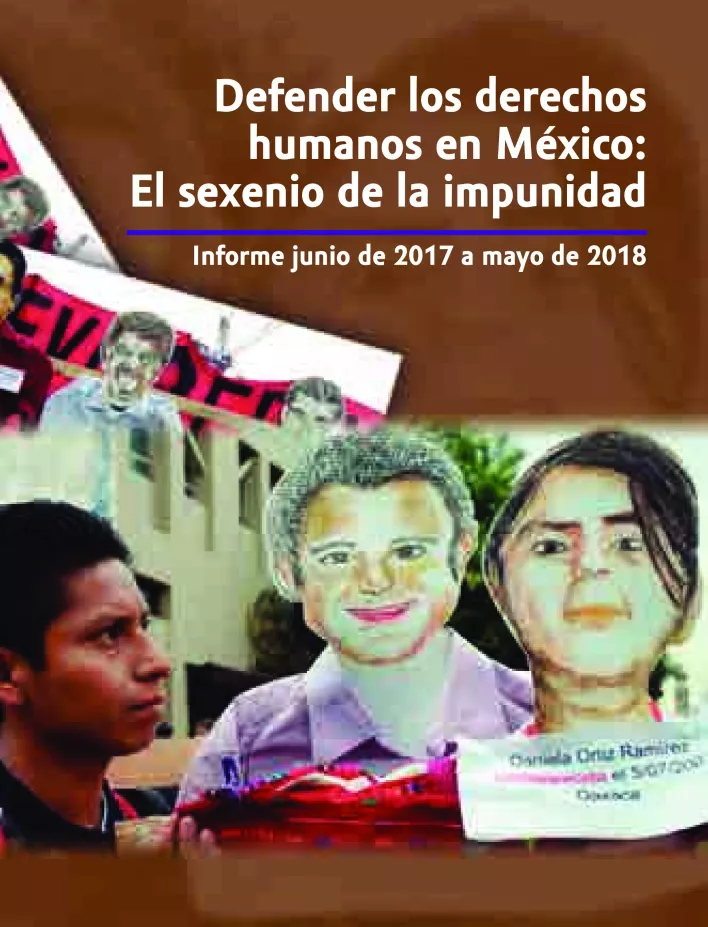The past few months have witnessed significant change in Mexico given the election of a new President and the promises and commitments his new government have already laid out. As the country waits with baited breath to see whether the new President can uphold the promises he has made to implement important changes in the country, key international bodies and their representatives have passed harsh judgement on various aspects of the running of the Mexican State, revealing the huge challenges Andrés Manuel Lopez Obrador will have to face as he assumes government later this year.
On 9th August, International Indigenous Peoples´ Day was celebrated across the world, whilst important challenges that remain for fulfillment of indigenous peoples´ right to self determination were highlighted. In the Mexican context, the Special Rapporteur on Indigenous Peoples, Victoria Tauli-Corpuz, made a visit to the country earlier in the year and released a particularly damning report on the state of indigenous rights in the country.
Her main observations were that structural discrimination continues across the country and there is a concerning lack of legal recognition for indigenous peoples´ rights. She highlighted the topics of land and territory, free prior and informed consent, political participation and access to justice as particularly concerning issues facing the Mexican Government and recommended steps to create an inclusive dialogue between the government and indigenous peoples in order to fully respect and protect their rights.
On 6th July Mexico underwent a revision at the UN Committee on the Elimination of Discrimination against Women (CEDAW). The Committee shed light on the gross human rights violations occurring daily against the female population across the country and highlighted specifically the high levels of violence and insecurity in many states and the emergence of anti-gender propaganda. The Committee recommended that various levels of the government, including justice procurement authorities, invest in capacity building in order to fully address the topic of gender and combat the discrimination that still exists and prevents true access to justice for women.

Educational rights defenders and those exercising their right to protest have been particularly affected over the past year, as well as land, territory and environmental rights defenders, a particular focus of PBI´s work given the huge challenges they currently face across the world. The conclusions from this report echo the concerns of Special Rapporteur for human rights defenders, Michel Forst upon his visit to Mexico at the end of last year. The Special Rapporteur on Freedom of Expression also realeased a report in March of this year highlighting elevated risk for journalists and the pitfalls in the protection mechanism, such as the lack of funding for preventative protection measures.
On 7th November of this year Mexico will undergo it´s Universal Periodic Review, a UN Human Rights Council procedure that evaluates the compliance with international human rights standards of each country every 4 years. This is an important moment at which different States can ask Mexico questions about specific measures it has taken to tackles the various human rights issues identified within the country. Already several civil society organisations have released shadow reports (in Oaxaca for example). PBI has shared a document of specific recommendations surrounding human rights defenders with our diplomatic contacts so that their State can raise these issues in the evaluation session and recommend the Mexican Government take certain steps to improve the human rights situation in the country.
These international evaluations and visits are crucial in the monitoring of governments and the strengthening of the protection and promotion of human rights internationally. Human rights are universal and indivisible and a violation of rights in one country has a direct impact on the enjoyment of rights in another. For this reason we should scrutinise States in the implementation of international recommendations to ensure that rights remain protected and fulfilled as a mechanism for pushing true social change that promotes justice, equality and the building of peaceful societies across the world.
